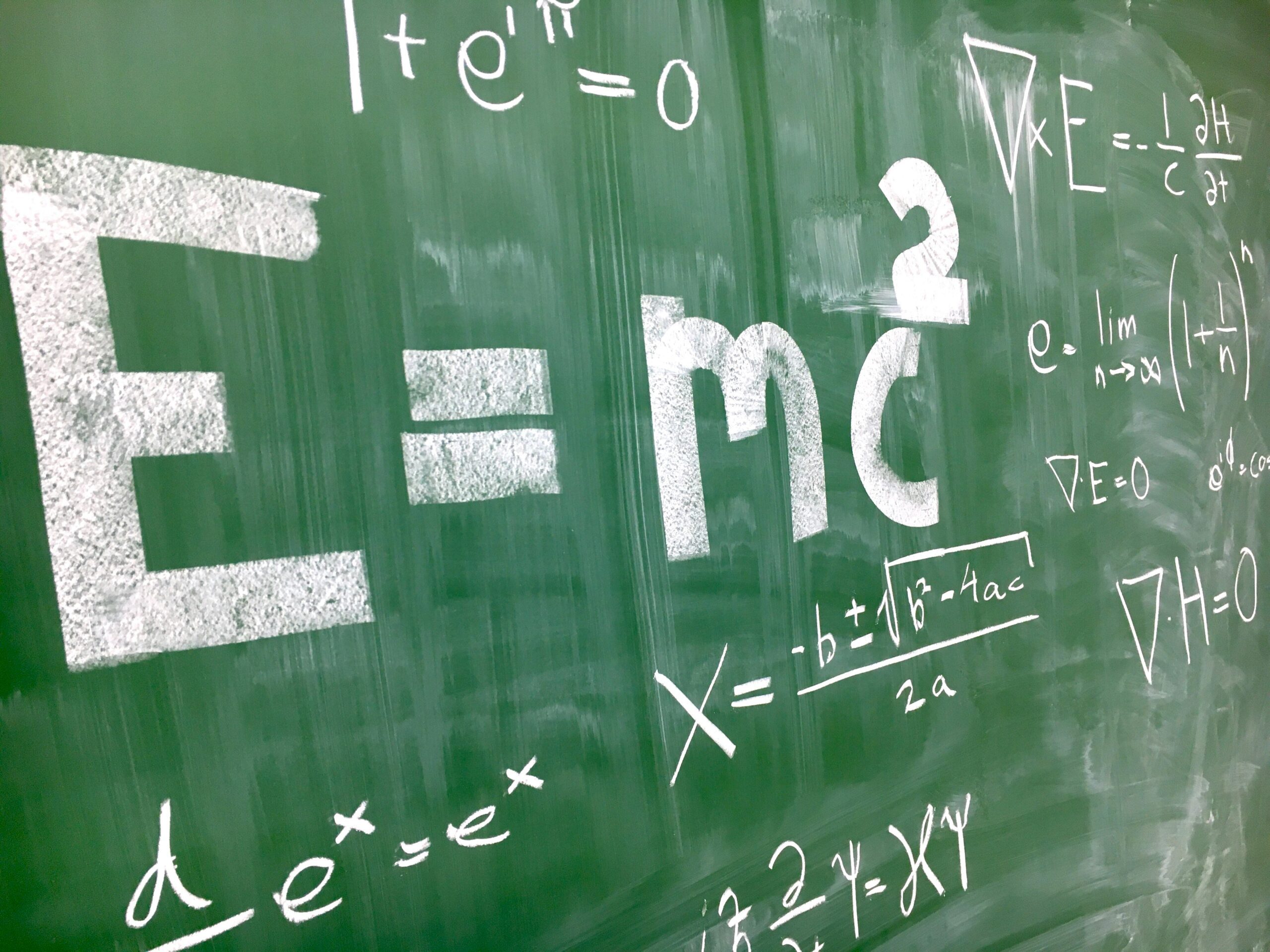With its combination of abstract theory and rigorous mathematics, it often poses a significant challenge to secondary and post-secondary students alike.
The ability to analyse motion, forces, energy, and electrical systems requires not just memorisation but deep conceptual understanding and strong problem-solving skills.
For many students, these demands can be overwhelming, especially when the pace of learning in school doesn't always allow time for individual reinforcement.
This is precisely where physics tuition becomes an invaluable tool.
Whether delivered face-to-face or online, physics tuition provides a structured yet personalised learning experience that bridges gaps in understanding and strengthens core knowledge.
In this article, we will take a closer look at the wide-ranging benefits of physics tuition and explore how it can transform a student’s academic performance, boost confidence, and nurture long-term success in the subject.
What is Physics Tuition?

Source: Unsplash
Physics tuition refers to additional academic instruction outside the conventional classroom environment, specifically designed to reinforce the learning of physics concepts.
It is typically offered by experienced tutors who specialise in helping students grasp both foundational and advanced material.
These sessions can take place in a variety of formats, including one-to-one tutoring, small group lessons, and increasingly, online tuition platforms that cater to remote or hybrid learning needs.
The primary objective of physics tuition is to offer tailored support that is often not feasible in standard school settings.
In a typical classroom, teachers must divide their attention among dozens of students, leaving little room for targeted assistance.
Physics tuition fills that gap by creating a focused and supportive space where students can learn at their own pace and clarify doubts without hesitation.
Moreover, physics tuition is not just reserved for struggling learners.
High-performing students also benefit by using tuition as an opportunity to deepen their understanding, stay ahead of school curricula, and prepare for competitive examinations.
Personalised Learning Experience
One of the most significant advantages of physics tuition lies in the personalised attention it offers.
Unlike in a traditional classroom, where teaching methods must cater to the general learning level of a large group, physics tuition can be customised to suit a student’s individual strengths, weaknesses, and preferred learning styles.
A capable tutor will first assess the student's current level of understanding through diagnostic questions or discussions, identifying specific problem areas that need targeted focus.
This initial insight then shapes the approach and pace of subsequent sessions.
For example, a student who finds abstract theories difficult might benefit from real-world analogies or hands-on demonstrations, while a mathematically inclined learner may be more responsive to formula derivations and equation-solving exercises.
Additionally, tutors are able to adapt their methods according to how a student learns best:
ii. Auditory learners might respond better to verbal explanations and discussions.
iii. Kinesthetic learners may benefit from practical activities and problem-based learning.
This level of individual attention allows for more efficient learning, greater engagement, and better retention of knowledge.
Enhanced Understanding of Concepts
Physics, as a subject, builds upon layered concepts, each topic often acting as a prerequisite for the next.
A shaky understanding of earlier chapters like kinematics or Newton’s laws can significantly affect a student’s ability to grasp more advanced areas such as circular motion, electromagnetism, or quantum theory.
One of the core benefits of tuition is the opportunity it offers to revisit and reinforce foundational concepts in a way that ensures lasting comprehension.
A good tutor will not only reteach difficult topics but also focus on strengthening the student’s conceptual framework.
Rather than encouraging rote learning, tuition sessions are structured to explore the “why” and “how” behind each principle. This depth of understanding is what enables students to confidently tackle varied and complex problems in exams.
Furthermore, concepts that might appear disconnected in school textbooks are often presented in an integrated and holistic manner in tuition sessions.
Tutors can draw connections across topics, linking mechanics to energy conservation, or circuit theory to magnetism, thus enhancing conceptual clarity and promoting logical thinking.
Students are also encouraged to ask questions freely, without the pressure of keeping up with their classmates. This open dialogue ensures that misconceptions are promptly addressed, and gaps in knowledge are filled systematically.
Focused Exam Preparation
Another major area where physics tuition proves extremely beneficial is in exam preparation.
Physics examinations, be it O-levels, A-levels, or other school-based assessments, can be particularly challenging due to the analytical thinking, structured answering, and time management they demand.
Even students who are well-versed in theory often struggle to apply concepts effectively under exam pressure.
Tuition offers a focused environment for targeted revision.
Tutors work closely with students to review key topics, revisit past questions, and refine problem-solving strategies.
Emphasis is placed not only on accuracy but also on developing efficient methods of approaching various question types, whether they be structured, multiple-choice, or data-response.
In addition, many tutors provide students with:
ii. Step-by-step walkthroughs of difficult exam problems
iii. Time-bound mock exams to simulate real testing conditions
Builds Confidence and Motivation
One of the most underestimated outcomes of physics tuition is the positive psychological impact it can have on a student.
Struggling with a demanding subject like physics can often result in low self-esteem, reduced motivation, and even a fear of failure.
This emotional burden can create a vicious cycle, where lack of confidence leads to poor performance, and poor performance further erodes motivation.
By providing consistent support and celebrating small wins, tuition helps to rebuild this lost confidence. When students begin to understand previously confusing topics and notice improvements in their schoolwork or test results, their mindset shifts.
What was once an intimidating subject becomes a source of pride and possibility.
Beyond academic improvement, a good tutor also acts as a mentor, encouraging the student, offering study tips, and reinforcing the value of perseverance.
These motivational boosts are often what sustain a student through exam seasons and keep them engaged in their learning journey.
Flexible Scheduling and Convenience
Today’s students juggle school hours, co-curricular activities, family obligations, and more.
Amidst such packed schedules, flexibility in learning becomes crucial, and physics tuition offers exactly that. Whether delivered at a tuition centre, at home, or online, lessons can be arranged to suit the student's availability and energy levels.
Many tutors offer options for weekend sessions, weekday evenings, or even ad-hoc revision slots before major tests. This makes it far easier to incorporate focused physics learning without disrupting the overall routine.
Moreover, students can adjust the frequency of sessions depending on their upcoming assessments or their current level of preparation.
Online tuition, in particular, has gained popularity in recent years.
With the advancement of digital tools such as screen sharing, interactive whiteboards, and video platforms, online sessions can be just as effective, if not more so, than traditional in-person lessons.
They also save on travel time and allow students to study in the comfort of their own home.
For families based in urban areas like Singapore, where commuting can be a concern, the convenience of remote learning cannot be overstated.
Many platforms now even offer access to recorded lessons or learning portals, enabling students to revise content at their own pace.
Conclusion
Choosing the right learning centre is a key decision in your child’s early development.
It’s not just about academics; it’s about building confidence, encouraging curiosity, and creating a love for learning that lasts.
The ideal centre is one that understands your child’s unique needs while aligning with your values as a parent. As you explore your options, take time to visit, ask questions, and observe.
A nurturing and engaging environment can make all the difference.
If you’re looking for a flexible, trusted alternative to in-person centres, T&T Learning Hub offers expert-led online programmes, focused on academic progression.
With interactive lessons and trained staff, we bring quality education to your home.
FAQs
Q. How do I find a good physics tutor?
Begin by seeking recommendations from friends, family, or teachers. You can also search online for tutors with positive reviews and verified credentials. Always look for someone with experience and a teaching style that suits the student's learning needs.
Q. Is online physics tuition as effective as in-person sessions?
Yes, online physics tuition can be equally effective. It offers the same personalised attention and resources as traditional methods, with the added benefit of convenience and flexibility.
Q. How often should a student attend physics tuition sessions?
The frequency of sessions depends on the student's needs and goals. Some may benefit from weekly sessions, while others might require more or less frequent meetings. Discussing this with the tutor can help determine the optimal schedule.
Q. Can physics tuition help with specific topics?
Absolutely. Tutors can focus on particular areas where the student needs more help, whether it's mechanics, electricity, or any other topic within the physics curriculum.
Q. What should I expect from a physics tuition session?
A typical session will include a review of previously covered material, introduction to new topics, and practice problems. Tutors may also offer tips and strategies for effective studying and exam preparation.

